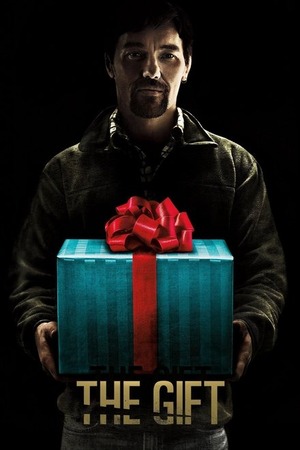
Directed by: Joel Edgerton
Starring: Jason Bateman, Rebecca Hall, Joel Edgerton
🎁 Introduction: The Past Never Forgets
The Gift (2015) is a psychological thriller that transforms the simple act of gift-giving into a battleground of memory, guilt, and social manipulation. The story follows Simon and Robyn, a married couple whose quiet suburban life is disrupted by the reappearance of Gordo, a former classmate. What begins as a series of awkward encounters soon spirals into psychological warfare, as old wounds and hidden secrets bubble to the surface.
👁️ Social Masks and the Unreliable Narrator
Jason Bateman’s Simon presents as the quintessential professional—affable, successful, and well-liked. But as the film peels back layers, Simon’s cruelty emerges: he bullied Gordo as a teenager, setting in motion traumas that would haunt both men for decades. Simon’s unreliability as a narrator invites viewers to question appearances; the true villainy lies not in overt malice, but in the rationalizations of those in power.
Gordo, by contrast, is awkward and mysterious, initially painted as a potential threat. Yet as Robyn investigates, the power dynamics invert. Edgerton’s direction destabilizes audience expectations, forcing us to question our own sympathies and the stories we believe.
🔍 The Weight of Memory and Trauma
At its core, The Gift is a film about memory’s grip on the present. Gordo’s gifts—cryptic notes, videotapes, and returned objects—function as physical reminders of past wrongs. For Simon, these tokens become intolerable, as they threaten to puncture the carefully curated reality he has built. For Robyn, they are keys to an emotional truth her husband refuses to share.
Trauma is not static; it is relived, transferred, and magnified. The film’s tension arises not from violence, but from the slow erosion of certainty. As Robyn is drawn into Gordo’s perspective, she is forced to question her marriage, her safety, and her own ability to judge character.
🕯️ Gaslighting and the Abuse of Power
Simon’s gaslighting of both Robyn and Gordo becomes a central motif. He manipulates events, rewrites history, and minimizes harm. In doing so, he weaponizes social status and trust, inflicting wounds that are invisible but deeply felt. The film’s brilliance lies in its refusal to provide easy catharsis; Simon is never held to account in a conventional sense, and the line between victim and perpetrator is continually blurred.
🪞 Ambiguity, Revenge, and Moral Complexity
The film’s climax—where Gordo enacts a cryptic revenge, leaving Simon and the audience unsure of what has transpired—foregrounds the ambiguity that permeates the narrative. The truth, it suggests, is always just out of reach, filtered through trauma, denial, and self-preservation. In the end, Robyn is left with more questions than answers, and Simon is forced to live with the possibility that his past has finally caught up with him.
🎯 Final Thoughts
The Gift is a masterclass in psychological tension, weaponizing the everyday and exposing the dangers of unresolved trauma. It interrogates the stories we tell ourselves, the wounds we inflict without consequence, and the impossibility of truly escaping the past. In the end, the film offers no clear victors—only survivors, each marked by what they cannot forget.